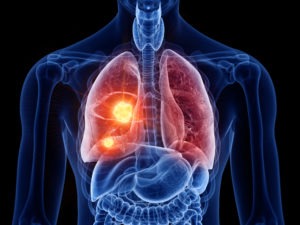
What Is Pneumoconiosis?
Pneumoconiosis, which includes several lung diseases such as asbestosis, silicosis, and coal workers’ pneumoconiosis (Black Lung Disease), is the result of routine exposure to certain dusts and particles that damage the lungs. Some of the most common dusts that cause these lung diseases are asbestos fibers, silica dust, and coal mine dust. Pneumoconiosis, which is almost always related to workplace exposure, is rare but can be serious and potentially fatal.
If your pneumoconiosis is making it impossible for you to work and support your family, you might be eligible to collect Social Security disability for pneumoconiosis in Pittsburgh. For a free case evaluation, call Berger and Green in Pittsburgh and speak to one of our disability lawyers: 412-661-1400.
40+ years of experience from strong, knowledgeable, compassionate attorneys.
Start A Free EvaluationWhat are the criteria for disability based on pneumoconiosis?
The Social Security Administration (SSA) evaluates all types of pneumoconiosis under Section 3.02 of its Blue Book. This section pertains to chronic respiratory disorders. The guidelines state that if you meet any of the four following characteristics, the SSA will consider you disabled:
- FEV1: Your FEV1 (a measure of the amount of air you can exhale in one breath) is less than or equal to a certain value, provided in the Blue Book for your age, gender, and height. For instance, per the SSA’s tables, if you are a 19-year-old, 5’2” female, your FEV1 must be 1.30 or less. If you are a 30-year-old, 6’0” male, your FEV1 must be 1.85 or less.
- FVC: Your FVC (a measure of the air you can forcibly exhale after taking the deepest breath possible) is less than or equal to a certain value, as per your age, gender, and height. A 19-year-old, 5’2” female would need a FVC of 1.5; a 30-year-old, 6’0” male would need a 2.30.
- Gas exchange impairment: Your body cannot exchange the amount of oxygen and carbon dioxide that it should, as indicated by your DLCO measurements, your arterial PaO2 and PaCO2 levels, or your SpO2
- Hospitalizations: You have had exacerbations or complications requiring three hospitalizations (that lasted 48 hours or more) within a 12-month period and at least 30 days apart.
We know you’re hurting. We can help. Free case evaluations, home and hospital visits.
Contact Us Now For HelpCan I still get disability if my pneumoconiosis does not meet the criteria?
You will meet the SSA’s definition of disabled if you satisfy the criteria under the listing for chronic respiratory disorders. However, that is not the only way to be approved for benefits. In fact, many people who get approved for SSA do not meet the listing criteria to a T.
If your pneumoconiosis is not listing-level, the SSA will take a closer look at your medical files and carefully assess your ability to perform everyday activities and to function on the job.
The examiner will evaluate your residual functional capacity or RFC to determine what basic capabilities — like walking, talking, lifting, etc. — that you still have, despite your condition. RFCs for people with pneumoconiosis often show limitations that arise from shortness of breath and severe fatigue.
If the SSA decides that your condition is so disabling that it impairs you from doing any kind of work, it may approve you for SSD benefits under a “medical vocational allowance.”
You need an attorney with the experience and dedication to give your case the care it deserves.
Start A Free EvaluationWhat are the other requirements to collect disability benefits?
There are several basic, but stringent qualifications for disability benefits:
- Your pneumoconiosis must either meet the listing criteria, or the SSA must determine that, considering your impairments, age, and education, your disease totally hinders your ability to work at any job.
- A doctor must expect your condition to last a year or longer or result in death.
- You must meet certain work credit or financial requirements, depending on whether you are applying for Social Security Disability Insurance (SSDI) or Supplemental Security Income (SSI) benefits. SSDI applicants must have enough recent work credits on their Social Security records to qualify. SSI applicants must have a very low income and few assets.
Understanding the detailed criteria and determining eligibility can get complicated. We can help you navigate the proess.
We can address all the legal hurdles that may be keeping you from getting a fair settlement.
Speak To An Attorney TodayHow do I prove my disability to the SSA?
You will need to submit all your medical records related to pneumoconiosis and the complications you have experienced. Your records should include:
- Your diagnosis of the disease, confirmed by chest x-ray or other diagnostic imaging
- The signs, side effects, and symptoms you experience
- Doctor’s notes detailing your limitations
- Treatments you have tried and how you reacted to them
- Your prognosis
The SSA will also take non-medical evidence into consideration when evaluating your disability claim. Your written account of your condition and how it is affecting your daily activities and ability to work can be helpful. You can also have your family, employer, social worker, or others who know about your situation to write a statement about your pneumoconiosis is impairing your abilities.
The SSA initially most disability claims, oftentimes because of lack of sufficient medical evidence. This is why it is a good idea to have a Pittsburgh disability lawyer assist you with your application. We will be able to review your paperwork and ensure it is thorough and accurate, and be prepared to appeal your case if the SSA rejects it.
How do I appeal the SSA’s denial of my claim?
If the SSA denied your claim, you have the right to appeal your case. For assistance in Pittsburgh, call Berger and Green and ask for a consultation with a disability lawyer that can help you with your pneumoconiosis case. The call is free and there is no obligation to retain us.
If you are eligible for benefits, we can ask the SSA to reconsider its first decision, which gives you another opportunity to present any additional evidence that can support your case. We can help with documentation, talk to medical professionals about your case, and fight for the benefits you need and deserve.
There are several levels of appeals we can use, if necessary, so do not lose hope if you have run into a roadblock. Call our office in Pittsburgh today at 412-612-1400 to see how we can help.








